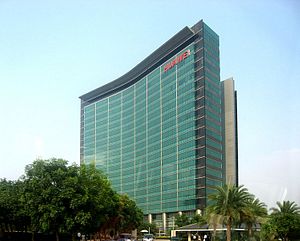U.S. attacks on Huawei will have repercussions across the world economy, as well as for the balance of power between the United States and China.
In the 1950s, the United States used export controls and visa restrictions to limit the ability of the Soviet Union to acquire scientific and technical knowledge. This effort helped undercut both Soviet military power and the broader Soviet economy. Although this effort probably hurt the USSR more than the United States, it undoubtedly slowed the global pace of scientific advancement by compartmentalizing researchers in different countries. The Trump administration’s decision on Huawei may have a similar effect with respect to global technology development in the 21st century. Paul Musgrave and others have discussed the impact of this interconnectedness on the U.S.-China educational relationship, which remains one of the pillars of global technology research. Overall, reducing contact between the world’s two largest economies will undoubtedly slow the general course of technological progress.
The immediate impact in the United States will negatively affect tech companies and the consumers who depend on them. Partnerships with Huawei were lucrative for U.S. companies, and many of these companies had priced the threat of IP theft into their negotiations. U.S. companies will also suffer from the chaos in the broader East Asian technology markets. In the long run, U.S. companies may benefit from a degree of protection, although this won’t improve their overall competitiveness.
China has its own weapons to respond; it has itself become a powerful node in international technology markets. China can threaten to limit access to rare earth metals, which will inconvenience but not devastate American tech firms. The Chinese government and Chinese companies may begin to build alternative networks for the acquisition of important parts and important intellectual property. Huawei and other Chinese firms may be forced to embrace autarky more aggressively than they had expected. While some (especially in the national security sphere) welcome this, it will shut Chinese firms out of the benefits of the global technology market, quite likely making it difficult for them to maintain international competitiveness.
With respect to the balance of military power, the state-owned portion of China’s defense sector is necessarily less vulnerable than primarily civilian firms like Huawei. However, the defense giants increasingly depend on China’s private tech sector for infusions of technology. Decoupling in the defense sector has already begun, and not just with respect to China. Overall, until China can replace the network linkages that the United States is weaponizing, the Trump administration’s policies will probably help maintain a degree of technological advantage over the PRC, if at considerable cost.
Thus, the United States has determined to undertake a potentially risky effort that may result in the destruction of Huawei, but that will also hurt American producers. The global effect will produce a degree of disruption that may make it very difficult to generate reasonable expectations about the future structure of the world economy. The weapons of interdependence don’t need to be designed with lethal effect in mind. Interdependence produces them, and savvy actors find a way to use them. Just as with SWIFT, turning IP protection into a lethal weapon that the United States can use to kill companies that it doesn’t like runs the risk of causing a backlash, and halting the momentum that produced strong protection in the first place. In short, Washington and Beijing are leading the world economy into uncharted territory.
































